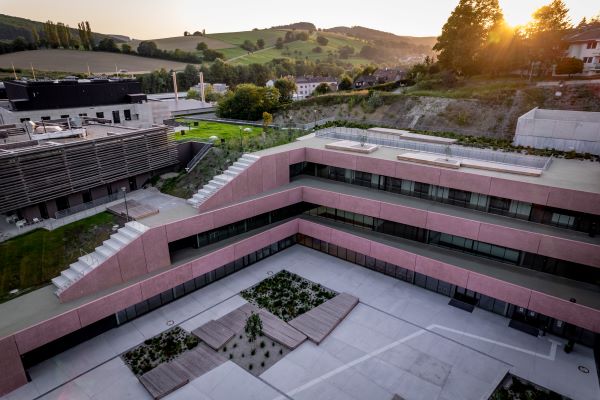
James Utterback
Sorbonne Université
Institut des NanoSciences de Paris (INSP)
Spatiotemporal Microscopy of Energy Carrier Transport: from Nanomaterials to Photoelectrodes and Phase-Change Materials
📅 February 26, 2026
🕒 11 : 00
📍 Building West | Heinzel Seminar Room
Coffee, beverages & snacks are served 30 min before the talk in front of the seminar room
The functionalities of photoactive materials ranging from optoelectronics, plasmonics, catalysis and phase-switching applications require not only control over the photoexcited charges but also heat generation, transport and dissipation. The transport of energy carriers at microscopic length scales underlies the efficiency of such applications. Yet, in many material systems, energy carrier transport must navigate heterogeneities of various natures over a broad range of length and time scales. Moreover, real device conditions may feature contact with other material layers, bias, and nonequilibrium conditions that cause deviations from pure material behavior. There are many approaches to inferring microscopic energy transport through energetic, temporal, or spatial markers, but each faces limitations. Moreover, heterogeneous systems are often elusive to simple models that reveal fundamental transport parameters. To understand the principles that govern electronic and thermal carrier dynamics in complex systems, advanced experimental techniques and models are needed.
In this presentation I will describe how pump–probe optical measurements and modeling of energy carrier transport provide access to nanosecond dynamic information with local, sub-micron specificity. I will highlight examples including colloidal nanocrystal assemblies, photoelectrodes for water oxidation, and insulator-to-metal phase transition thin films. This presentation will focus on the following questions: How do nanoscale and mesoscale structure and defects impact microscopic energy transport? How can we access information about energy carriers such as heat that are not traditionally probed by spectroscopy? How can we control the directionality of energy carrier flow? How can we access carrier transport under more realistic device conditions?
Professor James K. Utterback is a CNRS researcher at the Institute of NanoSciences of Paris of Sorbonne University. He did his PhD at the University of Colorado Boulder and his postdoc at the University of California Berkeley. His research group focuses on transient optical spectroscopy and microscopy of energy relaxation and transport in materials for optoelectronic, photochemical, and thermal applications. His research is funded by an ERC Starting Grant as well as French national grants.
Chemistry Colloquia are open to all and usually take place on Thursdays at 11:00 am (typically twice a month).
PhD students and postdocs are especially encouraged to attend!
Find instructions on how to get to the ISTA campus here.

